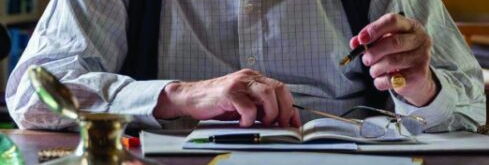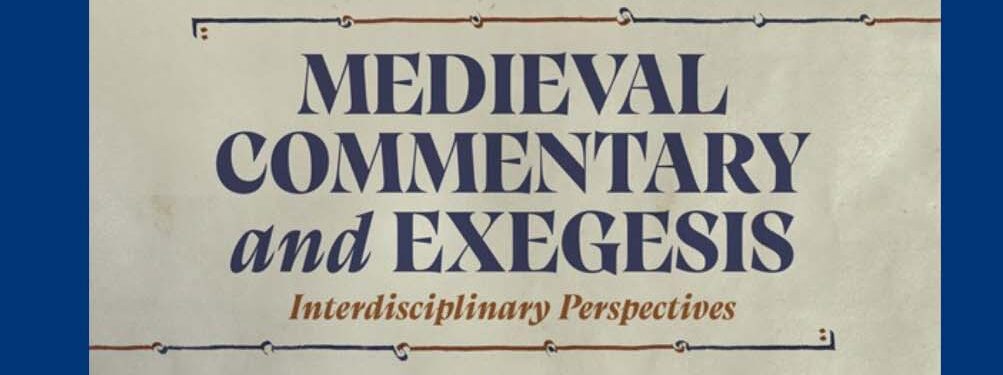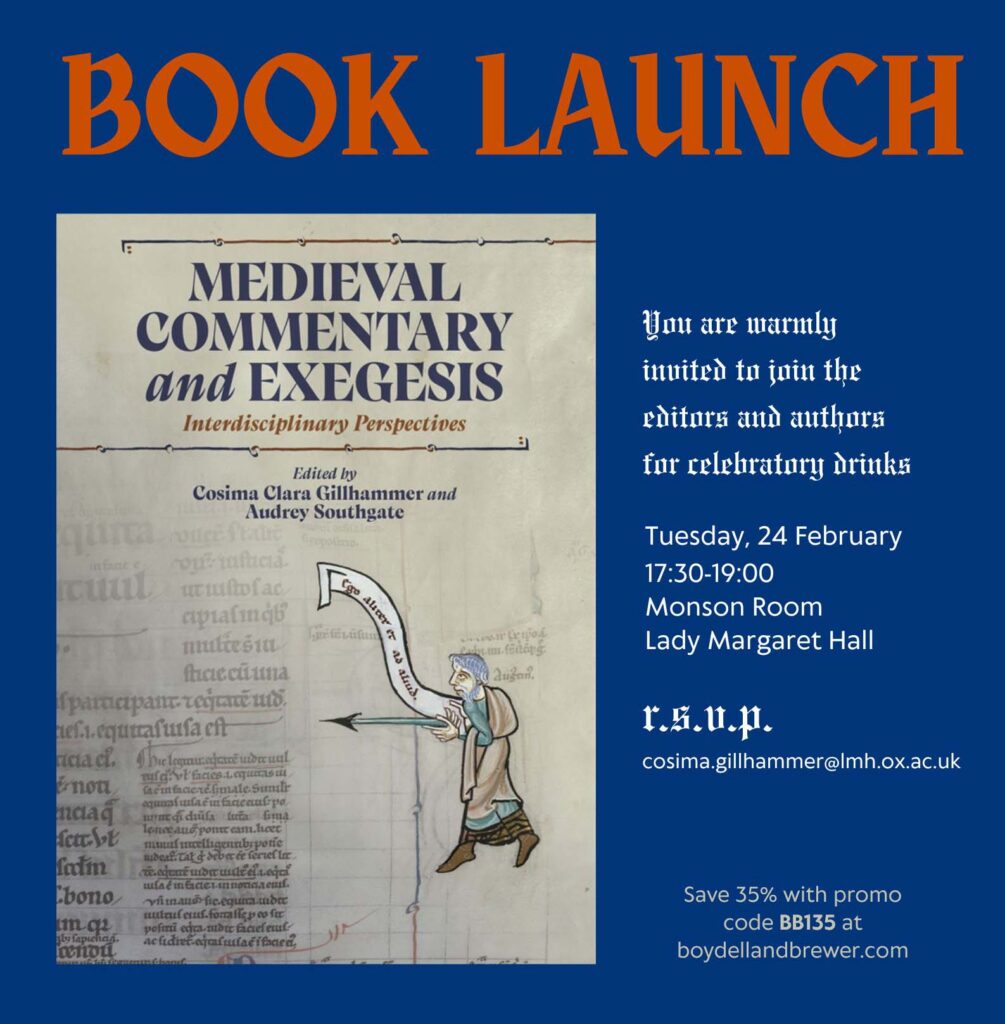Welcome all to week 7, and another packed schedule of events. The ‘Opportunities and Reminders’ section is growing particularly large, with a number of new additions – keep an eye out for CfPs and funding opportunities. The OMS blog continues to grow rapidly: Cris Arama (MSt. Medieval Studies) has recently written a report on Ian Forrest’s workshop.
Monday
- French Palaeography Manuscript Reading Group – 10:30, Weston Library
- Medieval History Seminar – 5:00, All Souls College. Jo Story (Leicester) “Insular manuscripts: why membrane matters” [Please note: this session will be in-person only, not hybrid – this is due to restrictions governing the sharing of unpublished data by grant partners].
Tuesday
- EMBI workshop: ‘Reading’ manuscript membrane: bioarchaeology of early medieval books’ – 10:00, Weston Library. Requires pre-booking.
- Latin Palaeography Manuscript Reading Group – 2:00, Weston Library (Horton Room). Those who are interested can contact the convenor, Laure Miolo.
- Medieval Church and Culture, theme: TRANSLATION(S) – tea and coffee from 5:00, Harris Manchester College. Simon Heller (Lincoln) will be speaking on ‘Translation, Transformation, and Transmission: the case of the Old English Beowulf’
- Old English Hagiography Reading Group – 5:15, Jesus College Memorial Room.
- Medieval French Research Seminar – 5:15, Maison Française d’Oxford. Nathalie Koble (ENS Paris) will be speaking on ‘Sens et sentibilité. Pour une lecture multimédiale de la Dame à la Licorne (Musée de Cluny, Paris)’ .
- Poetry Reading: Kevin Crossley-Holland – 5:30, St Edmund Hall. More information here.
- Church Historian Pub Night – 6:00 at the Chequers Inn. Contact Rachel Cresswell
Wednesday
- History and Materiality of the Book Seminar series – 2:15, Weston Library. Matthew Holford and Laure Miolo will be discussing Medieval Libraries and Provenance
- Older Scots Reading Group – 2:30, Room 30.401 (Humanities Centre). Palyce of Honour, Thyrd Part, ll. 1288-2142
- The Medieval Latin Documentary Palaeography Reading Group – 4:00, online.
- Islamic Studies Seminar – 5:00, Oxford Centre for Islamic Studies. Dr Moin Nizam will be speaking on ‘Transnational Ties of Faith: Imdadullah’s letters and writings from the Hijaz during the late-19th century’.
- Late Antique and Byzantine Seminar – 5:00, Ioannou Centre for Classical and Byzantine Studies. Alasdair Grant (Hamburg) will be speaking on ‘Ubiquitous and Universal? Rebellion and State Formation between Byzantium and Early Islam’
Thursday
- Middle English Reading Group (MERG) – 11:00, Lincoln College, Beckington Room. All are welcome as we read Sir Gawain and the Green Knight: bring any edition of the original text.
- Heraldry Society – 5:00, Oriel College. Dr Beatrice Groves (Research Fellow, Trinity) will be speaking on ‘”Azure-laced / With blue of heaven’s own tinct:” Shakespeare’s heraldic language’.
- Celtic Seminar – 5:15, Room 20.306 (Humanities Centre and Online). Emmet Taylor (Cork) will be speaking on ‘Heads, hierarchy and the heroic’
- Old English Graduate Reading Group – 5:15. Email Harriet Carter for location.
- The Khalili Research Centre For the Art and Material Culture of the Middle East: Research Seminar – 5:15, The Khalili Research Centre. Günseli Gürel (Khalili Research Centre) will be speaking on ‘Picturing marvels, magic and monsters at the Ottoman court, 1574–1603’.
- Guild of Medievalist Makers – 5:30, online. Optional theme: regrowth.
Friday
- Medievalist Coffee Morning – Friday 10:30, Visiting Scholars Centre (Weston Library). All welcome, coffee and insight into special collections provided.
- The History of the Bible: From Manuscripts to Print – 12:00, Visiting Scholars Centre at the Weston Library. The theme this week is ‘Vernacular Bibles of the Middle Ages’. Places are limited. To register interest and secure a place, please contact the lecturer at Péter Tóth.
- Exploring Medieval Oxford through Surviving Archives – 2:00, Weston Library (Horton Room). Those who are interested can contact the convenor, Laure Miolo.
Opportunities and Reminders
- CfP: Registration is now open for the Oxford Medieval Graduate Conference 2026:Sounds & Silence, taking place on April 23–24, 2026. More information here.
- CfP: Borders, Boundaries and Barriers: Real and Imagined in the Middle Ages. More information here.
- Registration is still open for the Medieval Insular Romance Conference, ‘Moving Medieval Romance’. 8–10 April 2026, St Hugh’s College, Oxford.
- Dies Legibiles, Smith College’s undergraduate journal of Medieval Studies, is looking for submissions for the 2025-2026 edition, deadline 3 March 2026 (website)
- Submission welcome to the journal Manuscript and Text Cultures.
- Doctoral studentship on Carolingian Latin poetry (Toronto-Melbourne).
- ‘Describing the British Library’s Illustrated and Illuminated Incunabula’ PhD placement opportunity at the British Library. Deadline: 27th Feb.
- Donald J. Keefe, S.J. Summer Research Fellowship. Deadline 1st March
- CfP: 20th Annual MEMSA Conference: Connection, Conversation, Contention: Encounters in the Medieval and Early Modern World – deadline 9 March 2026
- CfP: Forgotten Libraries: Lost, Dispersed, and Marginalised Manuscript Collections – deadline 14 March 2026
- CfP: Crossing Intellectual Boundaries in English Legal History. Proposals for papers should be no more than 400 words and should be sent to Ciara Kennefick and Ian Williams by 5pm on 23 March 2026.
- CfP: Gender and Medieval Studies conference 2026: Gender and Creativity. The conference will take place at University College, Oxford, 8-10 September. Deadline 13 April.
- CfP: Summer Conference of the Ecclesiastical History Society on the theme “The Church and Race. Deadline 15 April.
- Call for submissions for a special issue of Public Humanities journal on the topic ‘Creating the Medieval Now.’ Edited by Laura Varnam and Eleanor Barraclough. Short essays of 2,000-3,000 words, due 1 May 2026, by medievalists who are also creative practitioners.
- CfP: The Body in History. Deadline 6th July.










